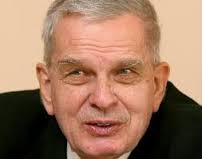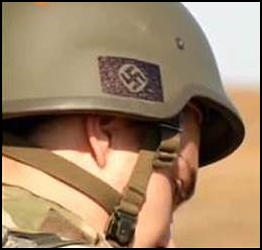UKRAINE | DOUBLE GENOCIDE | COLLABORATORS GLORIFIED
◊
Ukraine’s “pro-Western” president Petro Poroshenko, who in 2014 proclaimed the founding of a Hitlerist fascist group as a national holiday, and in 2015 tweeted photos of himself in a uniform making a joke of fascist leader Stepan Bandera, whose hordes were responsible for the murders of (at least) tens of thousands of Jewish and Polish civilians on the basis of ethnicity, has just “done it again.”
“To be ‘pro-Western’ one must share Western values, not just geopolitical foes.”
—DefendingHistory.com
On Friday, Poroshenko tweeted a photograph which he claimed represented citizens of Western Ukraine being deported to Siberia in 1947. His tweet translates: “Today is the 70th anniversary of mass deportations of populations of western Ukraine to Siberia and northern regions of the former USSR. We remember.”



